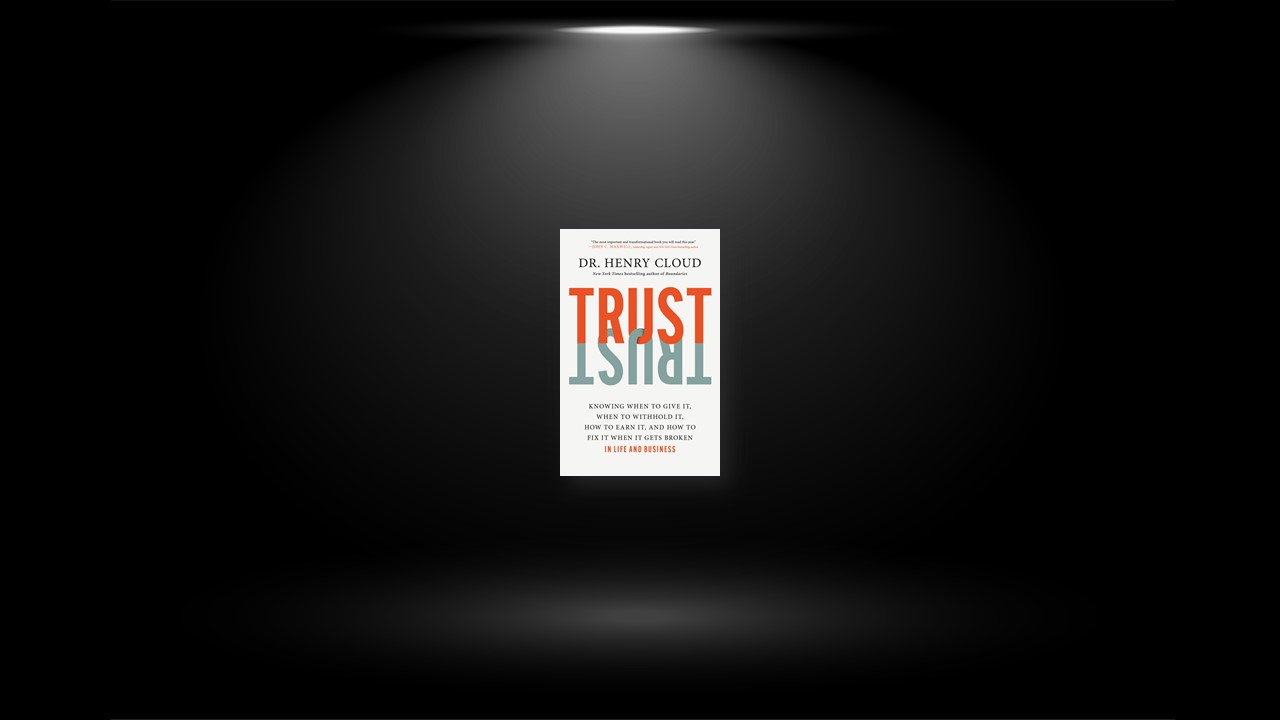Understanding: The First Essential of Trust
The process of trust begins by listening and by understanding other people—what they want and what they’re feeling—in short, knowing what matters to them. The task is to know them instead of to persuade them. People must feel known in order to trust. Trust begins not with convincing someone to trust you; it starts with someone feeling that you know them.
As a real FBI hostage negotiator, Chris Voss, puts it: “As I’ve worked with executives and students to develop these skills, I always try to reinforce the message that being right isn’t the key to a successful negotiation—having the right mindset is.” The mindset to which Voss refers is one of deep empathy—listening to understand the other person and having that person understand that you understand.
When someone feels that you understand them, something magical happens. The brain begins to change, to move from its neutral or guarded state, or an “against you” state, to an open state. Their brain opens up to being open to you, and trust takes its first step. This is physical and chemical, as well as psychological and spiritual.
Instead of the negotiator saying, “Take off the vest, put the bomb down, and let’s do the smart thing,” the negotiator takes a different approach. “Hi. I’m Josh and they sent me up here to understand what’s going on. What’s your name?” “David.” “Hi, David. What’s going on? Tell me how we got here today.”
With this approach, a slow dance unfolds. The hostage taker gradually reveals a little more about who he is, what has happened, and how he has come to this moment. And as all of that is happening, a little window of trust is opening up. A window where a dialogue is building that will allow the negotiator to find a solution acceptable to the hostage taker and avert the crisis. The dance has built trust. It is an investment in the relationship.
This dance is the dance of mirroring. As that happens, the brain shifts gears. The suspicious or closed-off brain that is driven by fear begins to shut down and the upper brain gets engaged. When we feel understood, that understanding calms down fear and resistance and we open up. We can actually listen better ourselves, think better, reason better, use better judgment, and have a conversation that can go somewhere productive. And it all begins by being understood.
Motive: The Second Essential of Trust
even when someone understands what you need, it is possible for them to be in it just for themselves and not for you. Thus, real trust is built not only through understanding but making sure the other party’s motive is right, meaning that they are for your good.
When we feel an employer, boss, spouse, friend, church, or institution really does have our best interests at heart, we let down our guard. We rest. We are less apt to guard our wallet, or our heart. We feel some ability to enter into “carelessness.” When someone is motivated to have your best interests at heart, you don’t worry.
Renowned marriage researcher John Gottman has something he calls the “index of betrayal.” It is a metric for knowing when a marriage is in trouble, and it has to do with how much one partner looks out for the other. In his words, the marriage is in the trust betrayal zone when “people are no longer looking out for their partner’s interests, or looking out for their own interests, but for their own instead of their partner’s interest. Trust has not only suddenly evaporated but also been replaced by betrayal. One’s ally and friend has turned into one’s adversary.” The concept here is that in a trusting relationship, we can depend on the other person to be caring and to look out for us, even when we are not there or not able to.
In work teams, what if every team member asked, “How is my quality [or timing or emphasis] of work going to affect someone else on the team?” In interdependent work situations, where there is a shared goal with multiple roles, this “thinking of others” is key to making it all work. A little laziness or omissions here and there might not affect me that much, but they could be a real nightmare for someone else. Trust says that your intent is for me as much as it is for yourself.
Ability: The Third Essential of Trust
People make big trust decisions because they already trust someone in many ways. The person is caring, honest, works hard, has good values, and is understanding and pure-hearted, smart, and creative. He or she probably has many other positive traits too. So, the “trust” button gets pushed, and they entrust something to such a good person. Usually, they really like the person, are already close friends, or have had great experiences with them, and these dynamics also make them trust the person. But this is a mistake because the person doesn’t have the ability needed to be trusted—not in the specific way or context in which they are about to be trusted.
Think about the following situation. Someone falls “in love” with a great, honest, fun person. After a period of dating bliss, they hit the “trust button” and enter into marriage. But marriage takes more than love, honesty, and fun. There are some very important “abilities” required to make it work. Does this person have the ability to communicate, to resolve conflict, to be resilient under stress, to be a good mother or father to your future children, and to be financially responsible? How many marriages have you seen struggle or fail because these “abilities” were absent? Yet people frequently entrust their entire lives to people who don’t have the ability to be a good spouse, wrongly thinking they will be able to deliver on the marriage contract.
The history of the word ability teaches us that it comes from the meaning around being “suitable.” This is a perfect way to think about this element of trust. Is it suitable for you to trust this particular aspect of life to this person? Is this person suitable for the task? Can he or she deliver what you need?
Character: The Fourth Essential of Trust
Often, when we speak of “character,” especially when wondering, “Can you trust him?” we say things like, “Oh, I totally trust him.” We mean that this is a person who would not lie, cheat, or steal. In other words, we tend to see the person only through a moral or ethical lens. We think that if someone has good character, it simply means we can believe the numbers. It’s like the way people often use the word integrity. A person of integrity is often described basically as someone who can be trusted to be honest. Again, he or she does not lie, cheat, or steal. So many assume the person is trustworthy.
This is far from the truth of the deeper and necessary meanings of integrity and character, as well as the meaning of trustworthy. There are many people who would not lie, cheat, or steal, but we would be in error to trust them in many arenas of life because of the rest of their personal makeup. You’ve probably had bosses, friends, or even family members who would not lie, cheat, or steal—but given another chance to work with them closely, you would certainly pass. You don’t want to deal with them again. Why? Because they have other “issues” that get in the way of things going well, and you are not able to trust them when you need things to work out well or even to be drama-free. Those people may be smart, honest, and “capable,” but so difficult to work with or falling short in other ways that it just won’t work.
you are not looking for “perfect wholeness of everything it means to be human” in one person, or you would be looking for a long time. But before trusting someone in a particular, specific way—for particular, specific outcomes—make sure there is enough of the whole picture of traits you need to be able to depend on that person, no matter how honest or brilliant they might be.
Track Record: The Fifth Essential of Trust
What someone has done before is usually the best indicator of what will happen next time. The best predictor of the future is the past.
When we trust someone, we place ourselves in a vulnerable position, depending on someone to behave or perform in a certain way. And by definition, if they don’t, we will get hurt in some way—emotionally, relationally, financially, or even physically. If we don’t know if they are able to come through for our vulnerability, or especially if they have never done it before, we are rolling the dice. But if we know, based on a track record, that they have performed in a certain way before, the odds go up considerably.
There is good reason for that. Traits and competencies that matter significantly, such as the ones we’ve been discussing, are not first-time performances or behaviors that can be done by “choice” or “acts of the will.” This means that someone who has performed poorly or never at all can’t just promise, “Oh, I’ll change. I’ll do it differently this time, I promise.” Why? Because, unless something has drastically changed to build new abilities, they are the same person, with the same level of abilities or traits, who failed the last time. They can’t just choose to be different. They have to become different.
The easiest example to understand this is the addict. How many times does a substance abuser or a sex addict, when caught, promise, “I’ll stop. I won’t do it again”? And spouses or significant others trust that promise. It might even be sincere. But, the reality is that until the competency for sobriety has been built through recovery, and then demonstrated, the ability is not yet there and trust is not warranted. Certainly, addicts DO change.
They get to a place where they can be trusted. But, trust is going to come after they have done some significant work to develop the ability that we are trusting them to have, and they have to establish a significant track record before we put them in a position of trust where they might cause heartache or damage again.
this does not mean at all that we cannot trust someone in a new position or context they’ve never been in before. Otherwise, there would be no such thing as promotions, first-time CEOs, or recipients of investment. Every single person who becomes engaged to be married for the first time is in this scenario. No problem that they have “never done this before.” They don’t have a track record in marriage. But they can have a track record of the kinds of qualities and capabilities that can transfer to the marriage context. And if we look for track record—in every situation in life—we’ll be on surer footing than we will if we don’t.


